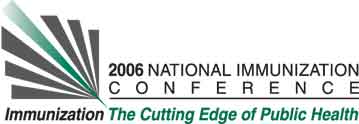Mary Rose Mueller, Hahn School of Nursing and Health Science, University of San Diego, 5998 Alcala Park, San Diego, CA, USA, Linda Hill, Family and Preventive Medicine, UCSD, 9500 Gilman Dr, MS 0811, La Jolla, CA, USA, and John M. Fontanesi, Partnership of Immunization Providers, Community Pediatrics, UC San Diego, 9500 Gilman Drive, MC 0927, La Jolla, CA, USA.
Learning Objectives for this Presentation:
By the end of this presentation participants will be able to:
1. identify some sources of provider and high risk adult disagreement over immunizations
2. identify some communication strategies used to negotiate and settle disagreements
3. identify some actions that impede resolution of disagreements
Background:
While studies have documented economic, organizational and cultural factors that contribute to the low rates of adult immunization, less well understood is how provider patient communication contributes to (or mediates) this phenomenon.
Objectives:
To describe observed sources of provider-patient disagreement over immunizations, some communication strategies that facilitate settlement, and some actions that impede resolution.
Methods:
Audio-recordings were made of 49 clinical encounters of providers and high-risk adults (18-55 years old) due influenza and/or pneumococcal immunizations. Of these encounters, 27 (55%) involved discussions of immunizations. Conversational analytic methods were adapted to identify: aspects of immunization-related interactions, including conversational prompts and responses; and clinical outcomes. This report focuses on responses involving disagreement on immunizations.
Results:
Disagreements were observed in sixteen (59%) transcripts. Three sources of disagreement – related to administration, patient beliefs (immunizations cause illness, others are more deserving) and patient experience (body fights disease without immunization) - were identified. Communication strategies used by providers to negotiate and resolve disagreements included: clarification seeking queries, provision of information, and advice. Negotiated agreements resulted in immunization. Impediments to settlement involved organizational barriers (administration times) and insufficient provider engagement with patient disagreements (culminating in movement to different topics). When unresolved disagreements occurred, immunizations were not given.
Conclusions:
Disagreements over immunization are not uncommon. Providers alert to the sources of and communication strategies useful in resolving disagreements may increase immunization rates and prevent illness in high risk adults.
See more of Findings from Qualitative Research with Providers and High-Risk Adults about Flu and Pneumococcal Vaccination Knowledge, Attitudes, Beliefs and Vaccine Promotion Messages
See more of The 40th National Immunization Conference (NIC)

